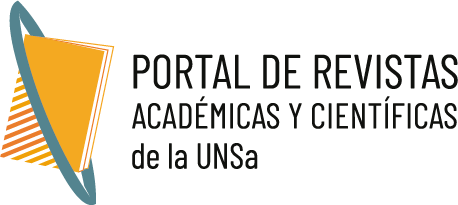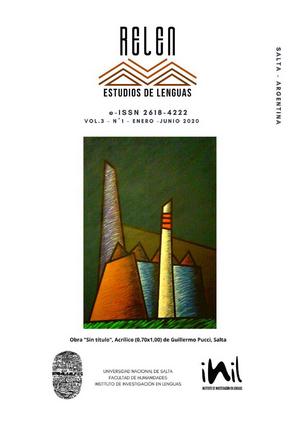Repensar el papel de las habilidades interculturales en la enseñanza del inglés en universidades colombianas
Palabras clave:
enseñanza del idioma inglés, universidades colombianas, habilidades interculturales, profesor nativo, profesor no nativoResumen
Parece haber una crisis mundial en la educación en términos de desarrollo de la imaginación, el pensa miento crítico y la empatia en los estudiantes dado el predominio de modelos económicos que ven las ganancias y el mpacto económico como las prioridades más importantes de la educación (Nussbaum, 2010). Este artículo plantea que las mencionadas cualidades pueden ser desarrolladas por profesores universitarios de inglés en universidades colombia nas a través de una expansión del plan de estudios de inglés en cursos que se enfoquen en el desarrollo de habilidades interculturales. Es importante asegu rarse de que haya suficiente amplitud y profundidad de conocimiento intercultural y que se desarrollen discusiones que permitan a los estudiantes hacer un análisis cultural comparado. Los educadores tam bién deben hacer algo de autorreflexión para evitar la influencia negativa del imperialismo lingüístico y la colonialidad en el aula para evitar que los estereo tipos positivos y negativos priven a los estudiantes del desarrollo de habilidades interculturales. Este artículo comenzará con una introducción al contexto de la enseñanza del idioma inglés colombiano, seguido de una descripción del propósito y la me todología elegida. A continuación, se presentará el marco teórico que dará lugar a dos debates sobre las ventajas y desventajas del aprendizaje intercul tural en el aula universitaria y las mejores prácticas asociadas al desarrollo de habilidades intercultura- les en los estudiantes, y una conclusión.
Citas
Alonso,J. C., Martín, J., & Gallo, B. (2015). El Nivel De Inglés Después De Cursar Educación Su perior En Colombia: Una Comparación De Distribuciones (English Proficiency in Colom bia after Post-Secondary Education:A Relative Distribution Analysis). Revista de Economía Institucional, 17(33).
Anderson,J. (2018). Reimagining English language learners from a translingual perspective. ELT Journal, 72(1), 26-37.
Barrantes-Montero, L. G. (2018). Phillipson’s Linguistic Imperialism Revisited at the light of Latín American Decoloniality Approach. Revista Electrónica Educare (Vol.22), 1-19.
Byram, M. (l997).Teaching and assessing intercultural communicative competence. Multilin- gual Matters.
Byram, M„ Gribkova, B„ & Starkey, H. (2002). Developing the intercultural dimensión in langua ge teaching:A practical introduction for teachers. Language Policy División, Directorate of School, Out-of-School and Higher Education, Council of Europe.
Corbett, J. (2003). An Intercultural Approach to English Language Teaching. Multilingual Matters Ltd.
Council, B. (2015). English in Colombia: An examination of policy, perceptions and influencing factors.
Crystal, D. (2014, July 6). Interview with David Crystal. (M. Kiczkowiak, Interviewer).
Galante, A. (2015). Intercultural communicative competence in English language teaching: Towards validation of student identity. BELT-Brazilian English LanguageTeachingJournal, 6(1), 29-39.
Geeslin, K. L., & Long, A.Y. (2014). Sociolinguistics and second language acquisition: Learning to use language in context. Routledge.
González-Moncada, A. (2007). Professional development of EFL teachers in Colombia: Be- tween colonial and local practices. Ikala, Revista de Lenguaje y Cultura 12,22,309-332.
Guerrero, C. H. (2010). Is English the key to access the wonders of the modern world? A cri tica! discourse analysis. Signo y Pensamiento, 29 (57), 294-313.
Jiménez, M„ Rodríguez, C., & Rey Paba, L. (2017). Standardized Test Results:An Opportunity for English Program Improvement. How, 24(2), 121-140.
Kachru, B. B. (1981).The pragmatics of non-native varieties of English. English for Cross-Cul- tural Communication, 15-39.
Kramsch, C. (1993). Context and culture in language teaching. NewYork: Oxford University.
Kramsch, C. (2013). Culture in foreign language teaching. Iranian Journal of Language Teaching Research, 1(1), 57-78.
Krashen, S. (1982). Principies and practice in second language acquisition. Oxford: Pergamon. Kumaravadivelu, B. (2016). The decolonial option in English teaching: Can the subaltern act?
TESOL Quarterly, 50 (I), 66-85.
Mackey,A., & Gass, S. M. (2005). Second language research: Methodology and design. New Jersey: Lawrence Erlbaum Associates, Inc.
Murphy,J. M. (2014). Inteligible, comprehensible, non-native models in ESL/EFL pronunciation teaching. System, 42,258-269.
Nussbaum, M. (2010). Not for Profit:Why Democracy Needs the Humanities. New Jersey: Prince- ton University Press.
OESE. (2019, January 10). Saber Pro (ECAES) ¿Para qué sirven? Retrieved from OESE: https:// eservicioseducativos.com/para-que-sirven-las-pruebas-saber-pro-ecaes.html
Phillipson, R. (2012). Foreword. In V. Rapatahana, & P. Bunce, English language as Hydra: Its im- pacts on non-English language cultures (pp. xx-xxv). Bristol, Buffalo.Toronto: Multilingual Matters.
Phillipson, R. (2014). English, the lingua nullius of global hegemony. The politics of multilingualism: linguistic governance, globalisation and Europeanisation (pp. 1-17). Geneva: University of Ge- neva.
Phillipson, R. (2016). Promoting English: Hydras oíd and new. In P. Bunce, R. Phillipson,V. Rapa tahana, & R.Tupas, Why English? Confronting the Hydra (pp. 35-46). Bristol: Multilingual Matters.
Skutnabb-Kangas,T. (2016). Series editor’s foreword. In P. Bunce, R. Phillipson,V. Rapatahana, & R.Tupas,Why English? Confronting the Hydra (pp. xvii-xxi). Bristol: Multilingual Matters.
Smith,A. (l97l).The Importance ofAttitude in Foreign Language Learning. The Modern Langua
ge Journal, Vol. 55, No. 2,82-88.






